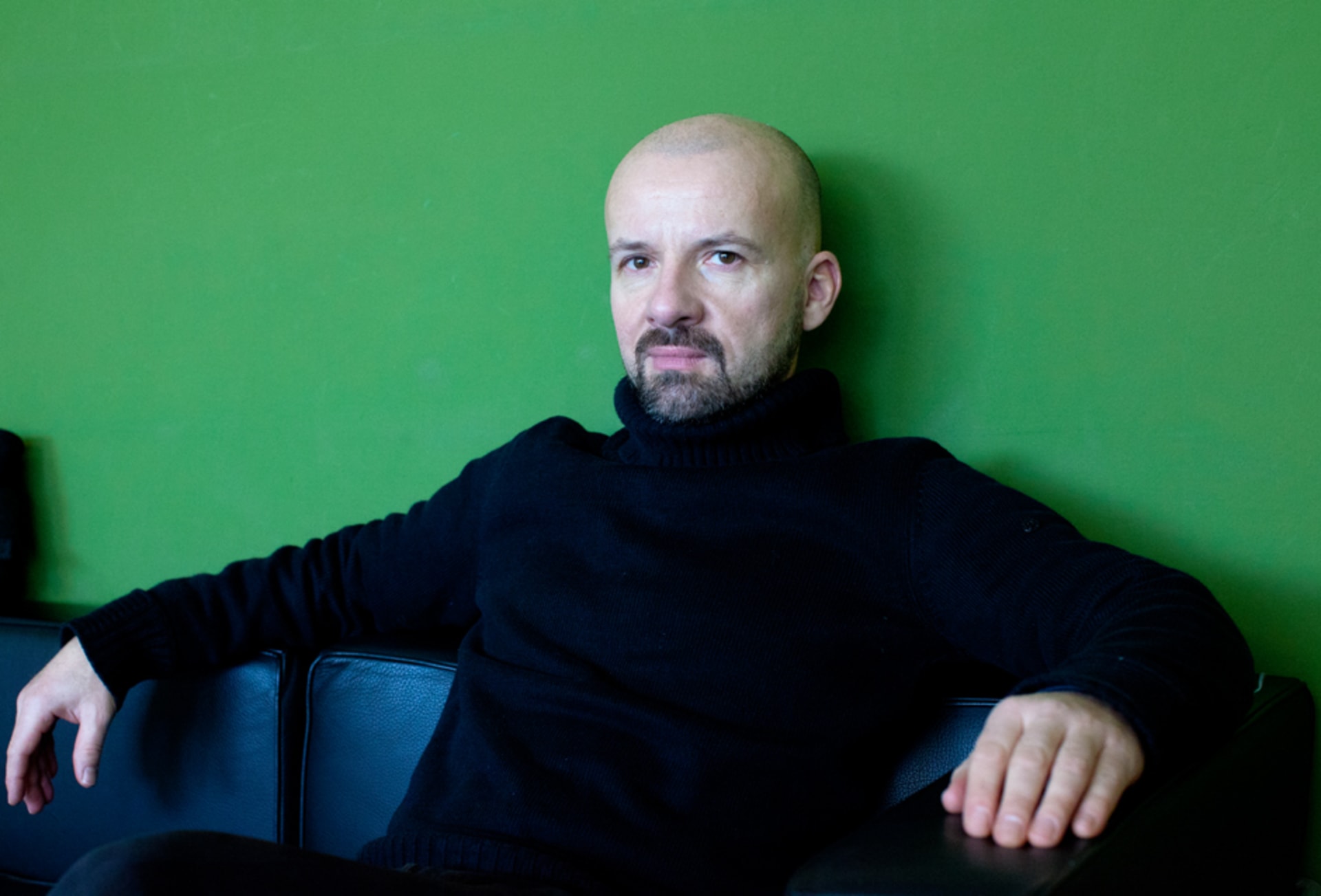
Shantel recalls his Depeche Moment
In the next part of our series assessing the impact of Depeche Mode through personal narratives, German DJ and producer Stefan Hantel, aka Shantel—best known for his Balkan electro-pop project Bucovina Club—remembers the role Depeche Mode’s music played when, at 15 years old, he fell in love for the first time. Photo by Luci Lux.
First of all, I’ve never met the band personally, nor was I was ever approached professionally to do a remix, but I do have an interesting story of how I was introduced to their music. I can still remember very clearly Depeche Mode appearing on German TV playing “I Just Can’t Get Enough”—there was a series at the time which showed video clips, I think it was Thomas Gottschalk presenting. When the song appeared I was deeply impressed by the sound, which was created by Vince Clark in those days, of the first generation. I owned the song and the album, but then I got more into The Police and that kind of thing and moved away from Depeche Mode.
However, some years later I was in Greece with my parents on this little island called Thassos. We stayed in this freaky camp and there was this one girl; she looked completely different to everyone else with her dark clothes, dark hair… I was immediately impressed and drawn in by her—I was about 15 or 16. So I started talking to her and she told me she was from Berlin, from a Turkish German family and that her name was Denise. I would see her and we would talk and we ended up coming up with this idea that one night we would sleep on the beach—and we took our sleeping bags and did it. She was the complete opposite of the hippy, freaky Greek tourist style which our parents and their friends were into, actually she was really against all this. We talked about music and there was a guy from Jamaica who was playing reggae music constantly and while I was impressed she exclaimed “This is horrible!” She ended up reintroducing me to Depeche Mode, and in that moment it offered this completely different attitude and philosophy from the situation we were in. There was sun and sand and then you had this very clean, very conceptual, very cold digital electronic music. I ended up falling in love with this girl very quickly, and the music took on a soulful quality, every song became a soul song because I connected it to that girl and the situation.
At the end of the holiday we parted, I went back to Germany and I never saw her again. However, I got very into the band, I used the songs of Depeche Mode to fulfil this idea I had of the love which couldn’t happen. A year later I came to Berlin on a school visit and we had a day trip to the DDR. I actually went to the house where she lived in Kreuzberg and stood in front of the house with my Walkman just listening to this one Depeche Mode song, but I was not able to move or ring the bell. Maybe I enjoyed this feeling of not seeing her, of not making that connection more than the potential reality, and Depeche Mode was the perfect soundtrack to this longing. After a while I eventually stopped listening to them and went in other musical directions but until today I haven’t really analysed what the band means to me. I also remember Kraftwerk; Computer World was a big deal when I was 14 or 15 but that was really robot music, that was machines. With Depeche Mode it was more like the angels were singing, even though it’s all synthesisers. That’s what I will always love about the band; that they make the electronic environment come alive. Looking at it from a producer’s point of view it’s very simple: they are fantastic songwriters. “I Just Can’t Get Enough” is a great song, you have it in one moment. Over the years they invented a very unique style that came along with great songwriting, a great taste for melodies, of not being afraid to use catchy melodies and hook lines. OK, they also had this dark streak which was the perfect metaphor for the feelings we had in the ’80s, maybe that’s the main reason why they became so popular in Germany? Of course, they’re an English band and their background as working class kids is dark too, but I remember in the ‘80s, how my friends and I would go to Berlin very often over the weekend and it was a dark place to be. I suppose you could say that Depeche Mode are something we grew up with—they soundtracked a hugely important part of our lives.~
Published April 03, 2013. Words by Stefan Hantel.
